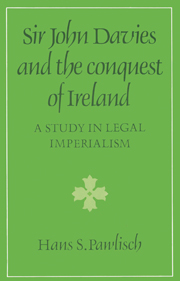Book contents
- Frontmatter
- Contents
- Preface
- Abbreviations
- PART I INTRODUCTION
- PART II JUDICIAL ENCOUNTERS: THE NATIVE COMMUNITY
- PART III JUDICIAL ENCOUNTERS: THE COLONIAL COMMUNITY
- 6 The mandates controversy and the case of Robert Lalor
- 7 The case of customs payable for merchandise
- 8 The case of mixed money
- PART IV CONCLUSION
- Notes
- Select bibliography
- Index
- Cambridge Studies in the History and Theory of Politics
7 - The case of customs payable for merchandise
from PART III - JUDICIAL ENCOUNTERS: THE COLONIAL COMMUNITY
Published online by Cambridge University Press: 13 October 2009
- Frontmatter
- Contents
- Preface
- Abbreviations
- PART I INTRODUCTION
- PART II JUDICIAL ENCOUNTERS: THE NATIVE COMMUNITY
- PART III JUDICIAL ENCOUNTERS: THE COLONIAL COMMUNITY
- 6 The mandates controversy and the case of Robert Lalor
- 7 The case of customs payable for merchandise
- 8 The case of mixed money
- PART IV CONCLUSION
- Notes
- Select bibliography
- Index
- Cambridge Studies in the History and Theory of Politics
Summary
The English government's attempt to secure religious conformity among leading officials in the Pale and the port towns of Munster proved to be only one phase in its assault on the Old English community in Ireland. During the same period, Davies and the central authorities waged a systematic campaign against the cherished liberties and privileges that had allowed the port municipalities to operate independently of royal control. This jurisdictional autonomy was to be tested in Waterford's refusal to admit the Lord Deputy to the town, on the authority of a charter granted to King John.
The most valued of the municipal privileges involved the granting of a right to customs revenues, and the appointment of customs officials, normally reserved to the crown. The size of the economic stakes at issue was considerable. It is understandable, then, that the government's attempt to eliminate corporate privilege also owed something to the designs of Robert Cecil and a clique of London-based entrepreneurs who proved more than willing to manipulate state policy in furtherance of their own commercial interests.
To appreciate these jurisdictional and commercial currents, it is necessary to discuss several aspects of municipal liberties. First, the towns had played a determining role in the successful outcome achieved by the aggressive Elizabethan policy of conquest and colonization in Ireland. Second, corporate liberties and franchises had long operated independently of government control.
- Type
- Chapter
- Information
- Sir John Davies and the Conquest of IrelandA Study in Legal Imperialism, pp. 122 - 141Publisher: Cambridge University PressPrint publication year: 1985



